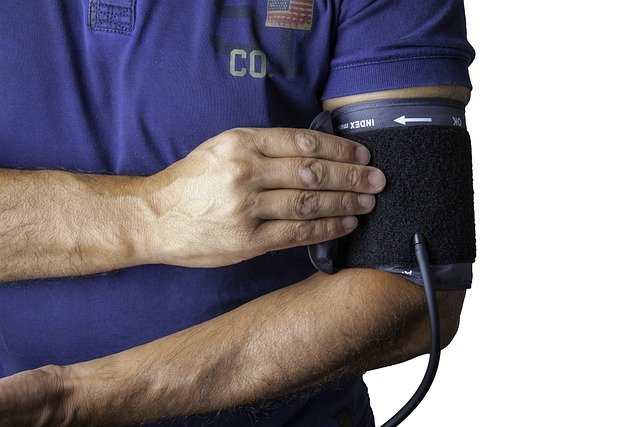Early Warning Signs of Heart Failure and Valve Disease
Heart failure and heart valve disease can show early warning signs. Learn about heart failure symptoms and how to spot signs of heart valve disease. Understand when to seek medical advice for a failing heart valve and take steps toward better heart health.

Heart failure occurs when the heart cannot pump blood effectively throughout the body, while valve disease involves dysfunction of the heart’s valves that control blood flow. Both conditions can develop slowly over time, making early detection challenging but essential for optimal management.
What Are the Early Signs of Heart Valve Disease?
Heart valve disease often begins with subtle symptoms that gradually worsen. The most common early indicators include shortness of breath during routine activities, unusual fatigue that doesn’t improve with rest, and chest discomfort or pressure. Some individuals may notice swelling in their ankles, feet, or legs, particularly at the end of the day. Heart palpitations or irregular heartbeats can also signal valve problems, along with dizziness or lightheadedness during physical activity.
Another significant early sign is reduced exercise tolerance. Activities that were once manageable may become increasingly difficult, requiring frequent breaks or causing excessive breathlessness. Some people experience a persistent cough, particularly when lying flat, which can indicate fluid buildup in the lungs.
How to Recognize a Failing Heart Valve
Recognizing a failing heart valve requires attention to both physical symptoms and changes in daily functioning. Heart murmurs, detected during routine medical examinations, often provide the first clinical evidence of valve dysfunction. However, not all valve problems produce audible murmurs initially.
Progressive symptoms typically include worsening shortness of breath, first during exertion and eventually at rest. Chest pain or tightness may occur, particularly during physical activity. Fainting or near-fainting episodes can indicate severe valve dysfunction, especially with aortic valve disease. Some individuals notice rapid weight gain due to fluid retention, along with persistent fatigue that interferes with daily activities.
Heart Failure Prevention Strategies
Preventing heart failure involves managing risk factors and maintaining cardiovascular health. Regular exercise, as recommended by healthcare providers, strengthens the heart muscle and improves circulation. A heart-healthy diet low in sodium, saturated fats, and processed foods helps maintain optimal blood pressure and cholesterol levels.
Controlling underlying conditions such as high blood pressure, diabetes, and coronary artery disease significantly reduces heart failure risk. Avoiding tobacco use and limiting alcohol consumption are crucial preventive measures. Regular monitoring of blood pressure, cholesterol levels, and blood sugar helps identify problems early when they’re most treatable.
Maintaining a healthy weight reduces strain on the heart, while stress management techniques can help prevent cardiovascular complications. Taking prescribed medications as directed and attending regular medical checkups ensure ongoing cardiovascular health monitoring.
When to Consult a Doctor for Heart Issues
Immediate medical attention is necessary for severe symptoms such as chest pain, severe shortness of breath, fainting, or rapid heartbeat accompanied by dizziness. However, many heart conditions develop gradually, making routine monitoring essential.
Consult a healthcare provider if you experience persistent fatigue that doesn’t improve with rest, shortness of breath during normal activities, or swelling in the legs, ankles, or feet. New or worsening heart palpitations, especially if accompanied by other symptoms, warrant medical evaluation. Changes in exercise tolerance or the development of a persistent cough should also prompt medical consultation.
Regular cardiovascular screening becomes increasingly important with age, particularly for individuals with family histories of heart disease or existing risk factors such as high blood pressure or diabetes.
Treatment Options and Medical Care
Treatment approaches vary depending on the specific condition and its severity. Heart failure management often includes medications such as ACE inhibitors, beta-blockers, and diuretics to improve heart function and reduce fluid buildup. Lifestyle modifications, including dietary changes and supervised exercise programs, form essential components of comprehensive treatment plans.
Valve disease treatment ranges from monitoring mild cases to surgical interventions for severe dysfunction. Minimally invasive procedures, such as transcatheter valve replacement, offer alternatives to traditional open-heart surgery for appropriate candidates. Some patients benefit from valve repair techniques that preserve the natural valve structure.
Advanced heart failure may require specialized treatments such as implantable devices, including pacemakers or defibrillators, to regulate heart rhythm. In severe cases, heart transplantation may be considered for eligible patients.
| Treatment Type | Provider Examples | Estimated Cost Range |
|---|---|---|
| Cardiac Consultation | Mayo Clinic, Cleveland Clinic | $300-$800 |
| Echocardiogram | Local Hospitals, Imaging Centers | $200-$1,000 |
| Valve Replacement Surgery | Johns Hopkins, Mount Sinai | $80,000-$200,000 |
| Heart Failure Medications | CVS, Walgreens, Local Pharmacies | $50-$500/month |
Prices, rates, or cost estimates mentioned in this article are based on the latest available information but may change over time. Independent research is advised before making financial decisions.
Early detection and appropriate management of heart failure and valve disease can significantly improve outcomes and quality of life. Regular medical monitoring, attention to warning signs, and prompt treatment when symptoms develop are essential for maintaining cardiovascular health. Working closely with healthcare providers ensures personalized treatment approaches that address individual needs and risk factors.




